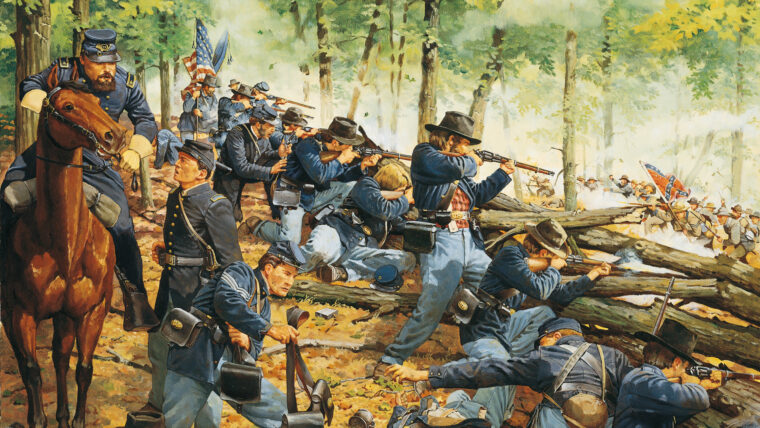
Abraham Lincoln
Battle of Chickamauga: Death in the Deep Woods
By Cowan BrewIt was nearly 11 on the morning of September 20, 1863, and the woods around slow-moving Chickamauga Creek in northwest Georgia were ominously quiet. Read more
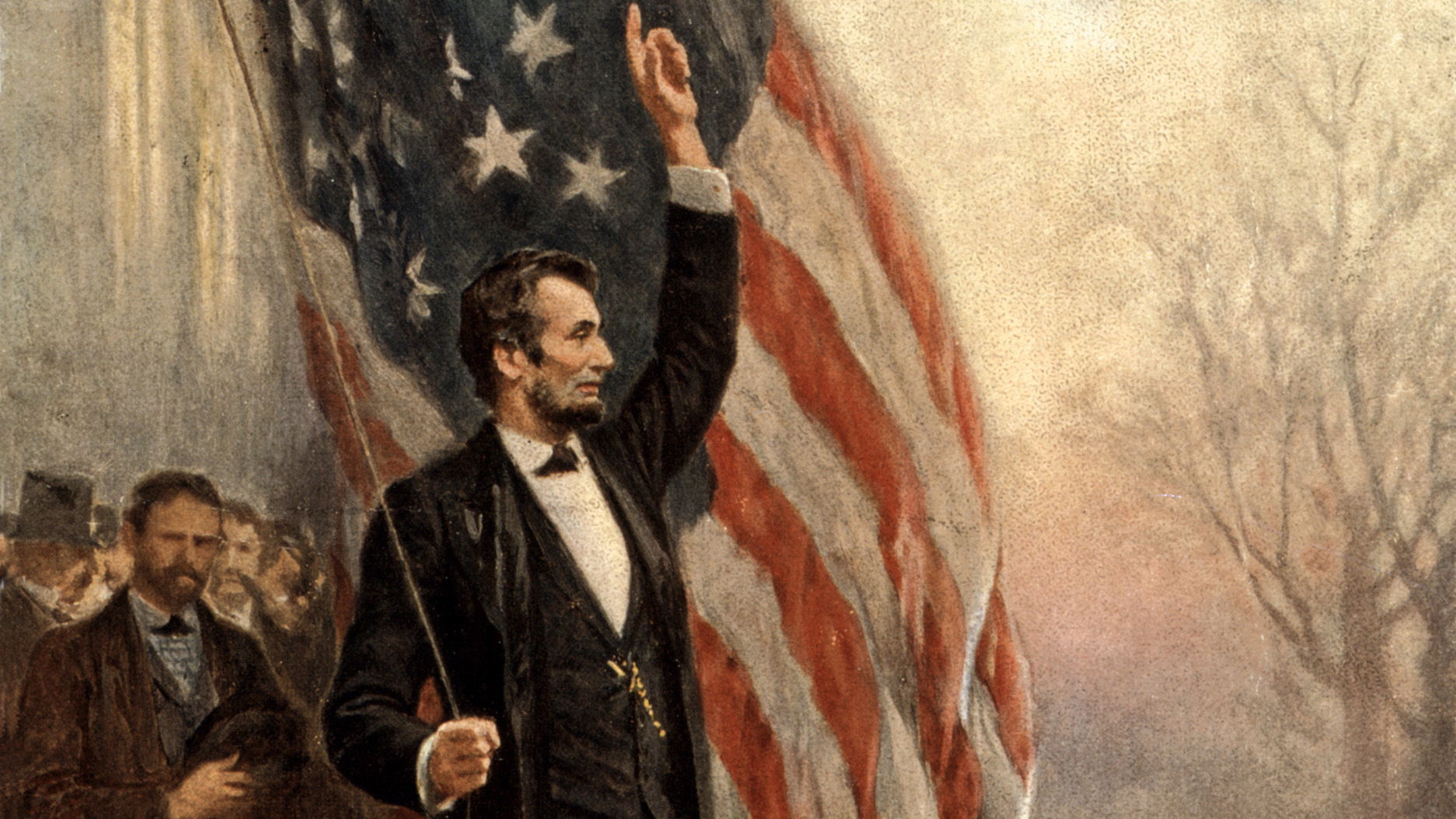
Abraham Lincoln served as the 16th President of the United States during the American Civil War. Abraham Lincoln was in office during perhaps the most critical time in the nation’s history and provided exceptional leadership. Lincoln is remembered as a man of wit and strategic vision. Abraham Lincoln’s Gettysburg Address is among the nation’s most treasured documents of freedom along with his Emancipation Proclamation, effective January 1, 1863, which freed slaves in territories in revolt against the United States. Abraham Lincoln was mortally wounded by assassin John Wilkes Booth on April 14, 1865, and died the following morning at the age of 56.

Abraham Lincoln
It was nearly 11 on the morning of September 20, 1863, and the woods around slow-moving Chickamauga Creek in northwest Georgia were ominously quiet. Read more
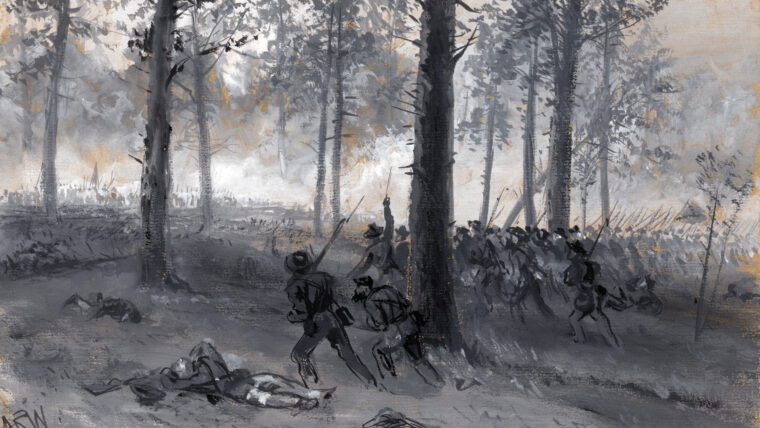
Abraham Lincoln
Seemingly from birth, William Haines Lytle was bound for glory. As the last surviving male offspring of one of Cincinnati’s leading pioneer families, Lytle was the prototypical golden boy. Read more
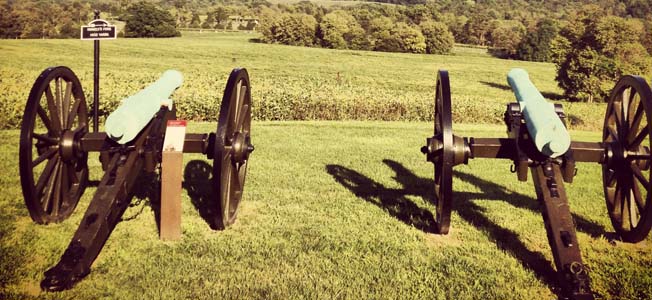
Abraham Lincoln
President Donald Trump has kept true to his pledge to donate his presidential income while in office, with the President’s first paycheck going, in full, to fund projects to maintain and restore the Antietam National Battlefield. Read more
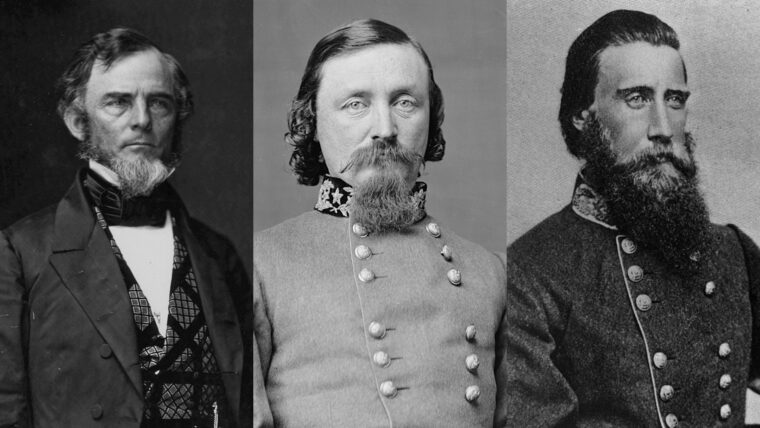
Abraham Lincoln
Confederate Maj. Gen. Gideon Pillow. After gaining ground trying to cut an escape path for the Confederates during the February 1862 siege of Fort Donelson by Union forces led Brig. Read more
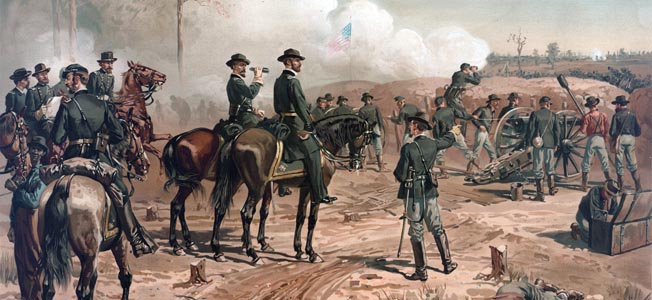
Abraham Lincoln
On September 3, 1864, a triumphant Maj. Gen. William Tecumseh Sherman telegraphed Washington, “Atlanta is ours and fairly won.” Read more
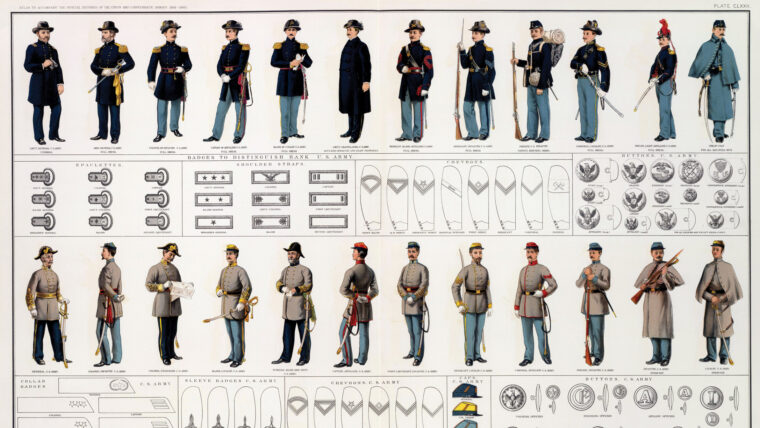
Abraham Lincoln
The title of the 128-book, 138,579-page work was a suitably large mouthful: The War of the Rebellion: A Compilation of the Official Records of the Union and Confederate Armies. Read more
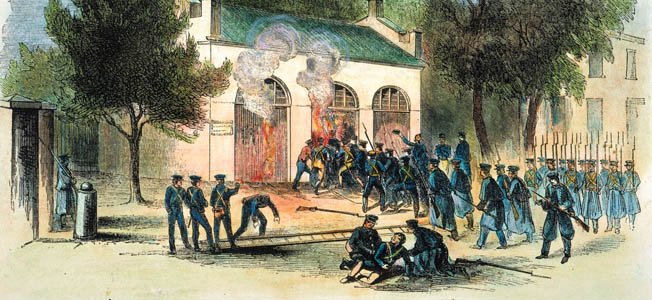
Abraham Lincoln
On the morning of October 17, 1859, an aide to Secretary of War John B. Floyd hurried off with an urgent message for Colonel Robert E. Read more
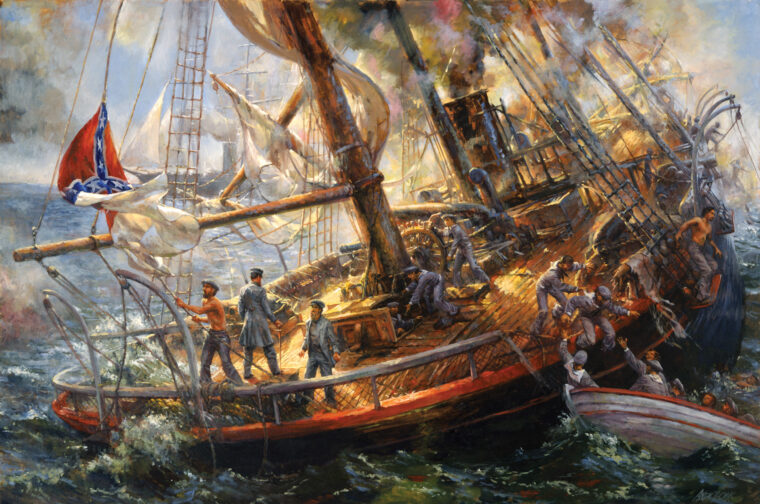
Abraham Lincoln
On August 24, 1862, newly promoted Captain Raphael Semmes of the Confederate States Navy called his largely English crew to the quarterdeck of his new command, the 220-foot battle cruiser Alabama, lying off the coast of Terceira in the Azores. Read more
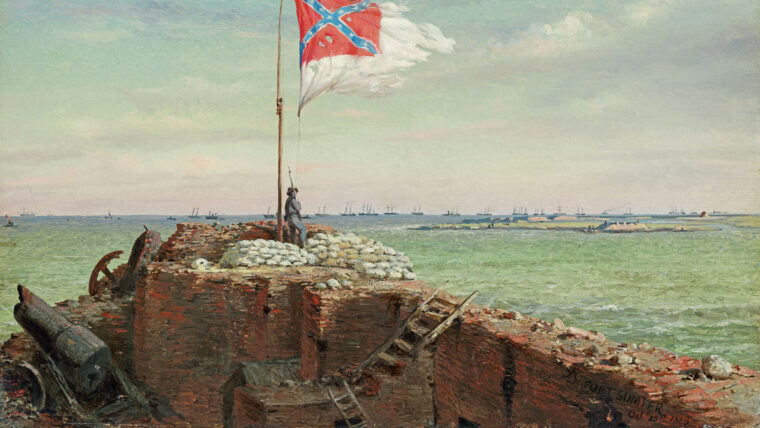
Abraham Lincoln
The Union bid to capture Charleston, South Carolina, in April 1863 was set in motion seven months earlier, in the autumn of 1862. Read more
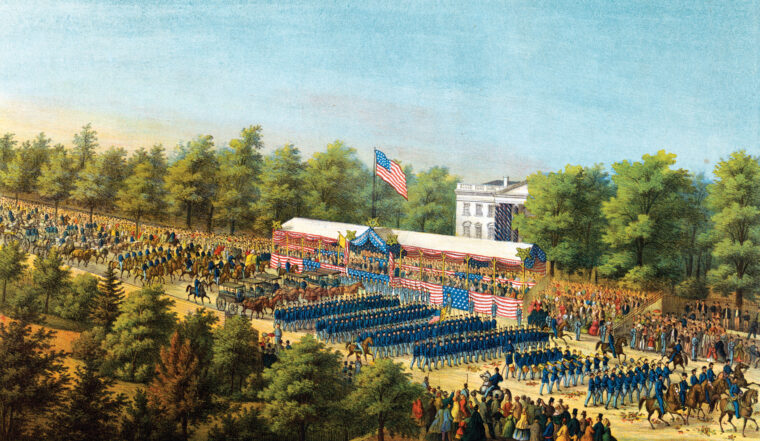
Abraham Lincoln
Robert E. Lee’s surrender at Appomattox, presaging the subsequent surrender of other Confederate forces in the West and the capture of Southern President Jefferson Davis a few weeks later, marked the triumphant end of the nation’s great sundering. Read more
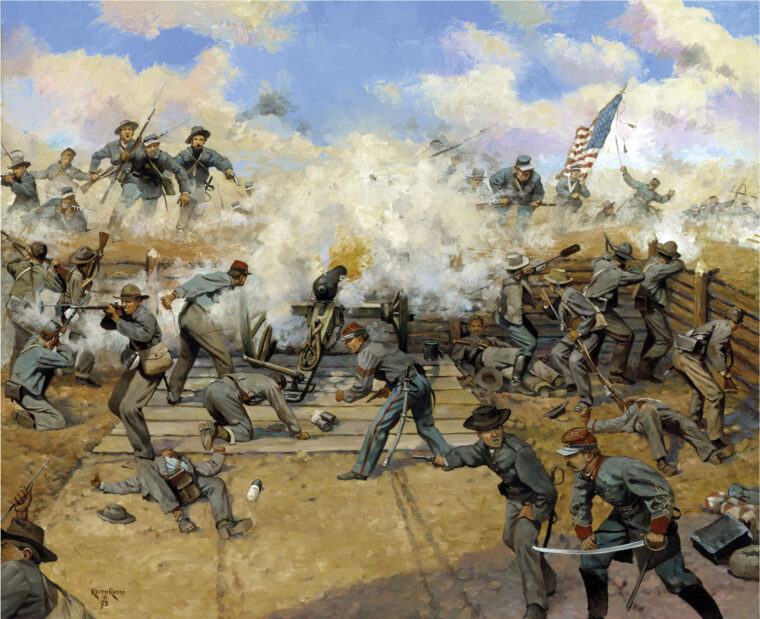
Abraham Lincoln
Lieutenant Colonel Horace Porter, personal aide to Lt. Gen. Ulysses S. Grant, maneuvered his mount past ammunition wagons, ambulances, stragglers, and prisoners jamming the muddy roads leading back to headquarters from Five Forks, Virginia, on the evening of April 1, 1865. Read more
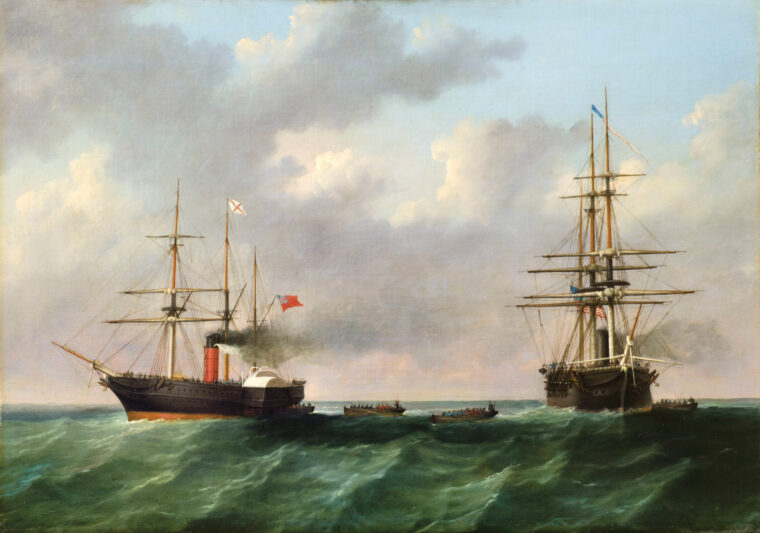
Abraham Lincoln
In November 1861, word swept through London that an American warship, James Adger, in port at Southampton, was planning to put to sea and intercept a British ship bringing Confederate emissaries to Europe. Read more
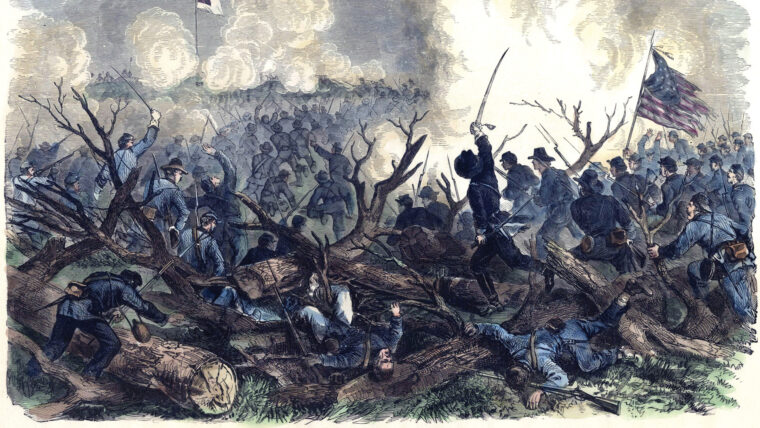
Abraham Lincoln
Nathaniel Banks was a political creature, and with his country in the throes of civil war, he now held the politically obtained rank of major general in the Union Army. Read more
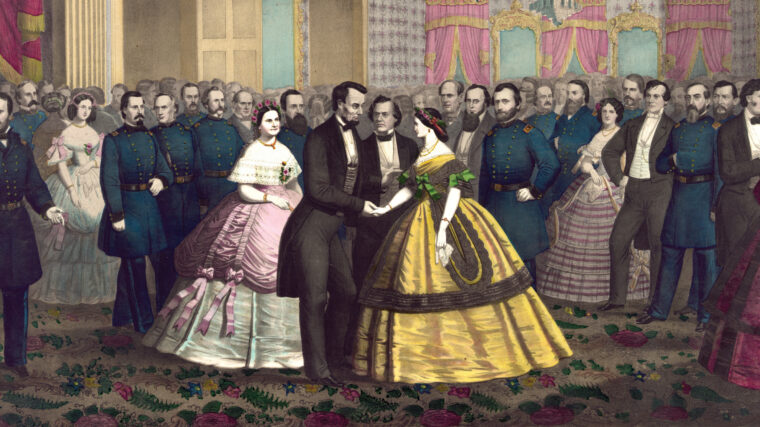
Abraham Lincoln
On March 8, 1864, a rainy Tuesday, President and Mrs. Lincoln held a reception at the White House in Washington. Read more
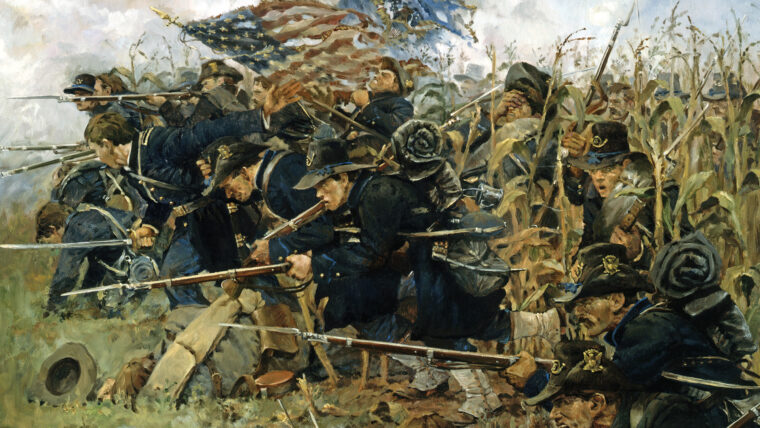
Abraham Lincoln
The White House was a somber place in the summer of 1862. The Civil War was in the midst of its second costly year, and the Union armies had yet to win a significant victory in the eastern theater. Read more
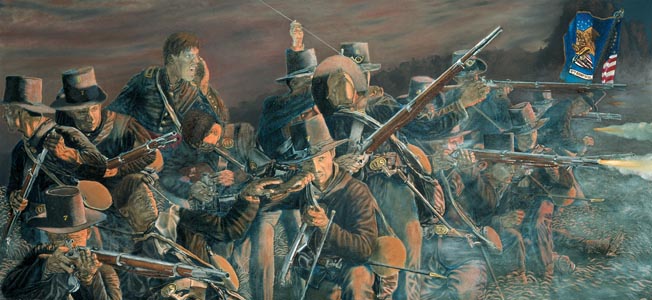
Abraham Lincoln
The ground around Manassas, Virginia, was not auspicious for Union Army forces in the first two years of the Civil War. Read more
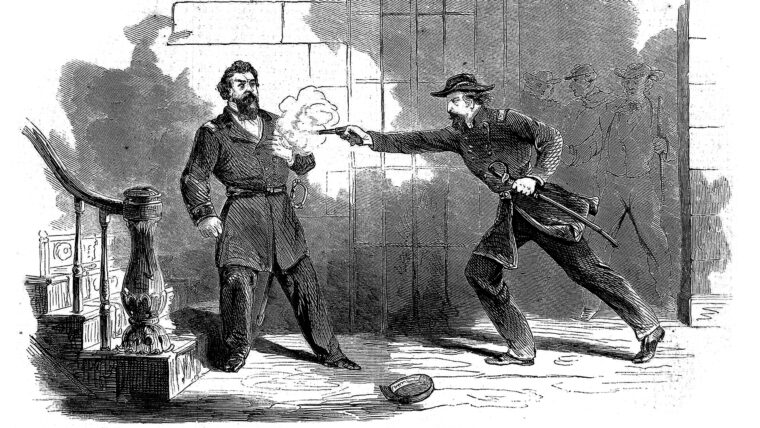
Abraham Lincoln
Few Civil War officers, in either army, were as polarizing as Union Maj. Gen. William “Bull” Nelson. Read more
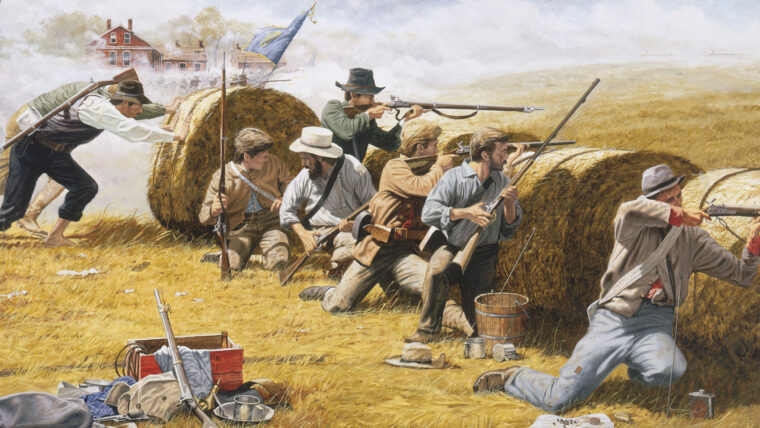
Abraham Lincoln
Brigadier General James S. Rains’s Confederate cavalry rode confidently toward the prosperous little town of Lexington, Missouri. Dressed in Missouri homespun, Rains’s men hardly looked the part of a flying military column, but most of the hard-riding horsemen had known only victory during their short service. Read more
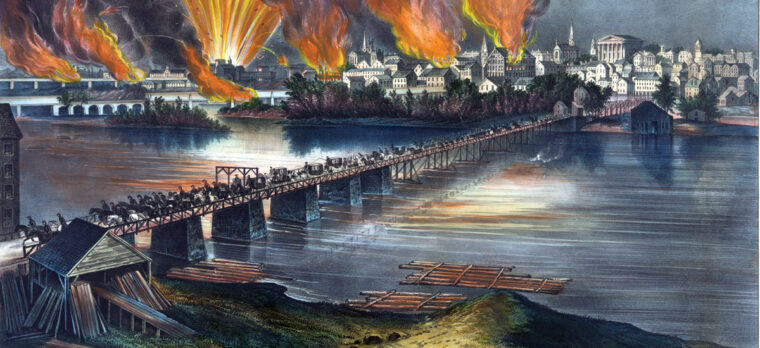
Abraham Lincoln
When the end came, on April 2, 1865, Confederate President Jefferson Davis was sitting in his customary pew at St. Read more
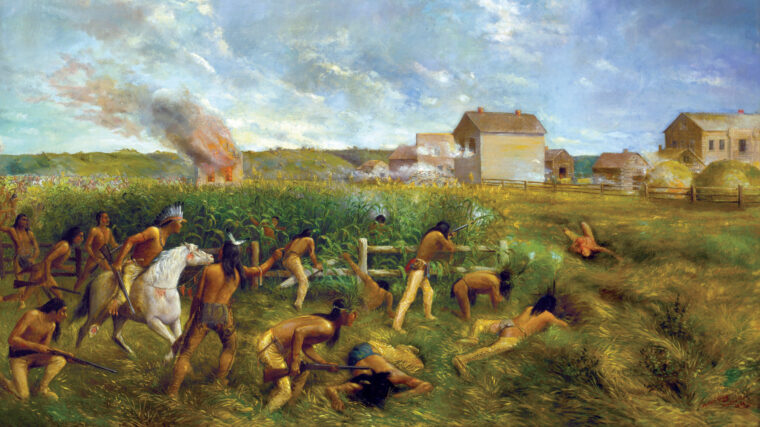
Abraham Lincoln
Shortly after midnight on the morning of Monday, August 18, 1862, an uneasy group of Santee Sioux warriors arrived at the simple frame home of Taoyateduta, known to the whites as Little Crow. Read more